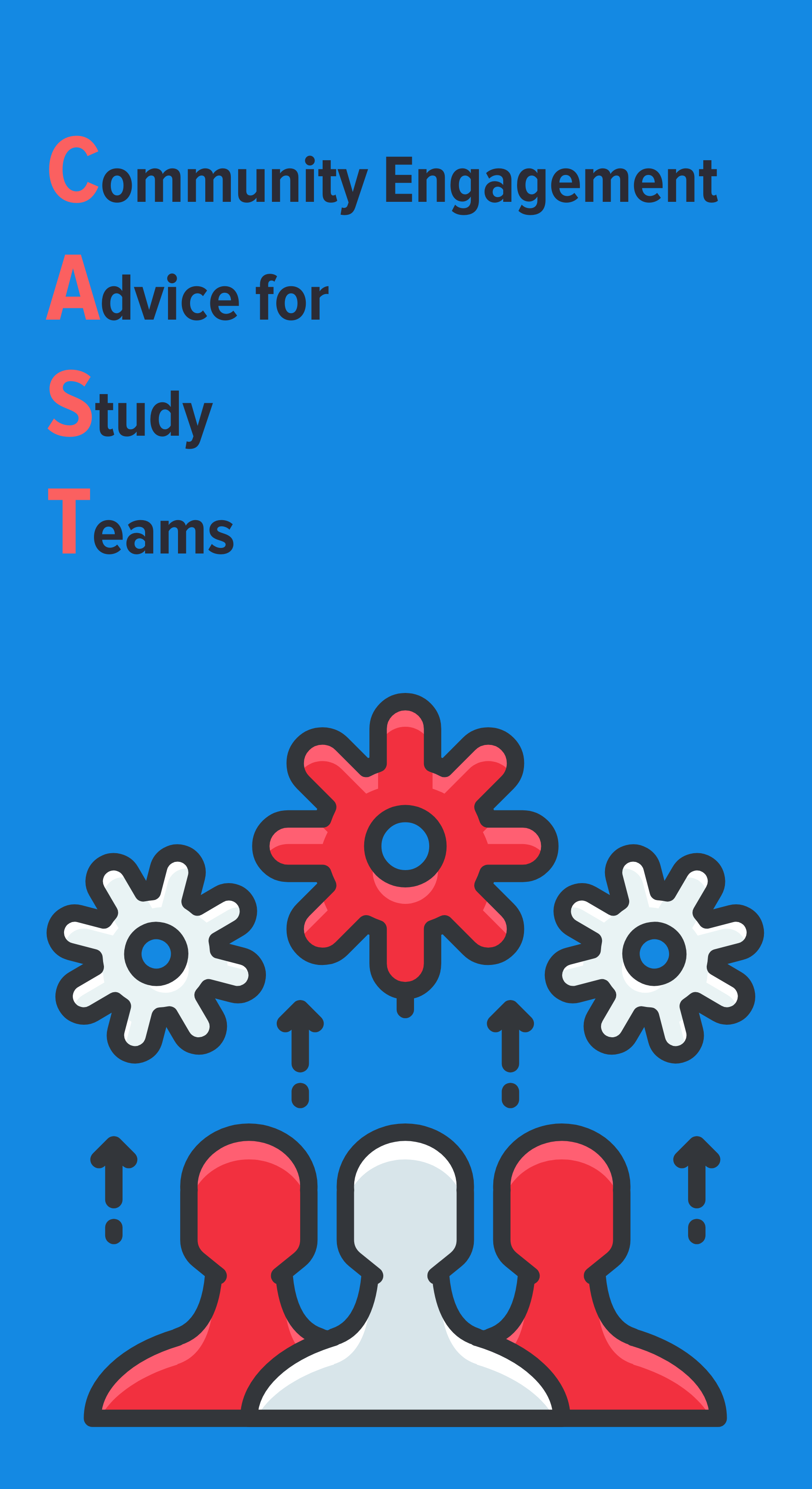The KEMRI-Wellcome Research Programme is a health research institute based in Kenya. Community engagement for every research project is supported by a "CAST" team. Community engagement Advice for Study Teams (CASTs) is a strategy used to streamline Community Engagement for research projects. A CAST group comprises community engagment staff, senior study team members (including the Principal Investigator) and may also include a frontline study member (those who seek consent and undertake some of the study procedures). The team is formed once a research protocol has received ethical approval and meets regularly throughout the conduct of the study. It is set up to advise on the implementation of the study engagement plans, to discuss and advise on issues that emerge during the conduct of a study, and to streamline the coordination of study-specific engagement within the study and across KWTRP. In addition, CASTs are formed for different themes/groups of work undertaken in the Programme. For example, there is a CAST for studies being conducted in inpatient wards within our local hospital, known as a Ward-based CAST, as such settings might present specific engagement challenges. For example, patients who are approached to participate in research do not come from a defined location where engagement activities can be rolled out, but can come from different regions of the country; the CAST team therefore advises on how best studies could engage with this population that is presenting at the hospital.

The study CASTs meet regularly. The initial meetings lead to the development of a community engagement plan, which is like a roadmap of what is expected in terms of engagement. The plan is informed by the nature of the study considering factors such as the type of study (the procedures involved, and the sensitivities), the population targeted (number of participants targeted, the geographical location or institutions from which the participants are drawn, and the type of participants), the study duration, and the different groups that should be engaged. The CAST members also discuss and develop 'key messages' based on the information contained in the study protocol and information and consent forms.
These key messages help to standardise the messages intended to be shared during community engagement events to ensure that correct and consistent information about the research study is being passed to the groups being engaged. Besides the basic study information like the study title, the Principal Investigator, study objectives, etc., the CE plan also captures details about sensitivities of the study, the targeted audience, the engagement approaches, the necessary materials needed for the CE activities, and training needs, among other information.
The community engagement plan is a living document and can be adapted based on prevailing circumstances (a sample CE Plan is shared for details). Subsequent CAST meetings are meant for sharing updates, handling any stakeholder and community-related concerns or challenges that may arise, planning for the study exit, and sharing of study findings, among others.
